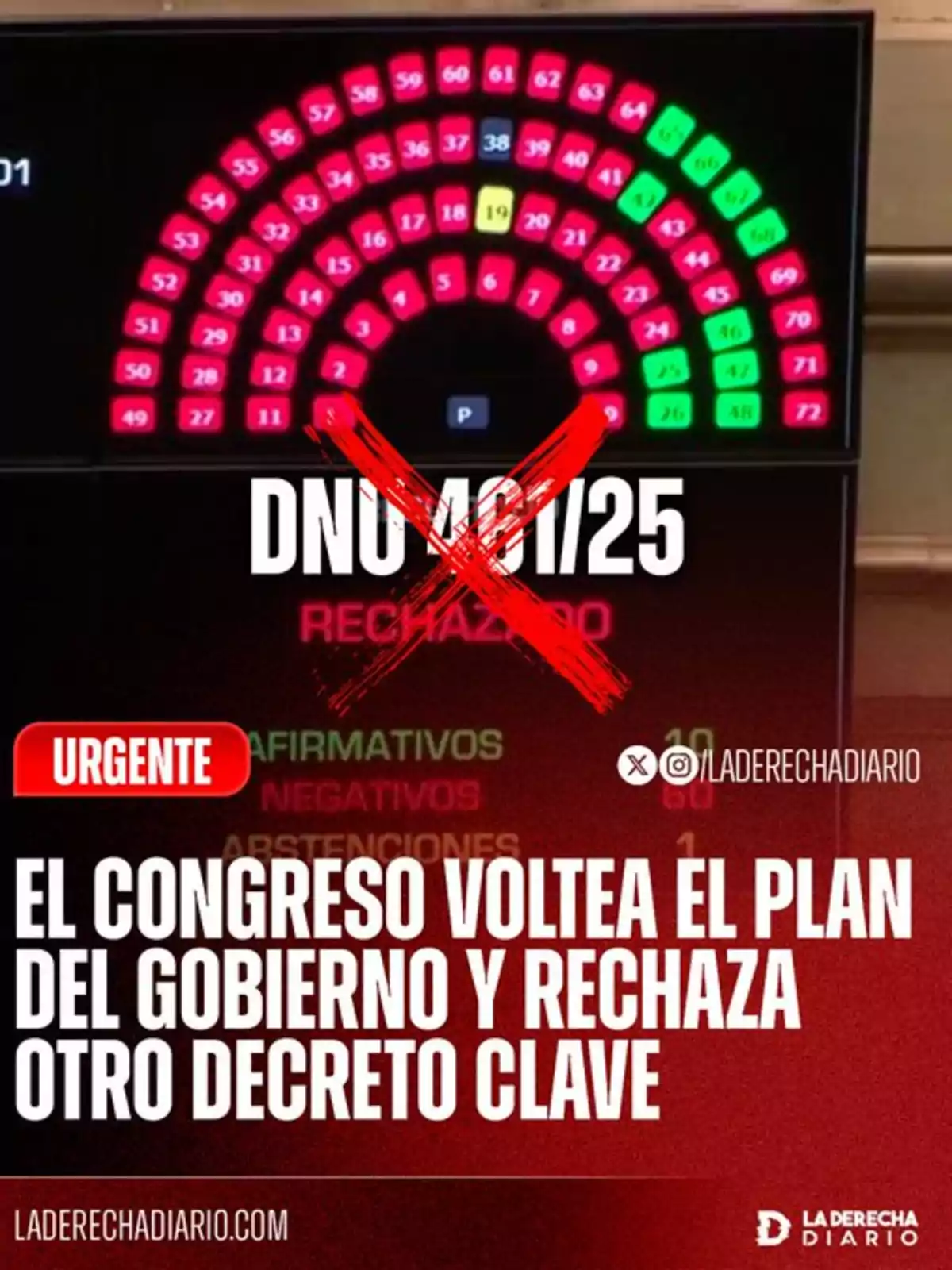
The opposition repealed Milei's key decrees and supported the Kirchnerist scams.
The rejected decrees eliminated unnecessary jobs, ended wasteful spending, and dissolved useless organizations
With strong opposition support, led by Kirchnerism, the Senate definitively rejectedfive decrees from President Javier Milei that promoted key reforms in major agencies such as Vialidad Nacional, INTA, INTI, and the Banco Nacional de Datos Genéticos (BNDG).
The decrees struck down by the political caste eliminated scams, ended wasteful spending, and dissolved political and useless Kirchnerist agencies. This blow not only complicates President Javier Milei's adjustment plan, supported by millions of Argentines, but also the strategy of the Minister of Deregulation and State Transformation, Federico Sturzenegger, the main proponent of these reforms.
“We are in a democracy that is exploring uncharted territory. This would be the first time a delegated decree is repealed, which takes us into unknown legal territory,” Milei warned this morning at the Council of the Americas. In that same meeting, the president described Congress's actions as a “macabre spectacle.”

The Senate session will continue with a sensitive agenda. Among the key points are the approval of deficit budgets for universities and the declaration of a pediatric health emergency for two years, measures that seek to destroy the fiscal surplus to break the State and create a new economic crisis.
All these proposals already have the approval of the Chamber of Deputies, so if they receive the green light in the Senate, they will be automatically enacted into law.
The rejected decrees
Decree 462/25 dissolved useless agencies such as the Regulatory Agency for the Hemp and Medicinal Cannabis Industry (ARICCAME), the National Seed Institute (INASE), and the National Institute of Family, Peasant, and Indigenous Agriculture (INAFCI).
It also restructured the National Institute of Industrial Technology (INTI), the National Institute of Agricultural Technology (INTA), the National Institute of Industrial Property (INPI), and the National Institute of Viticulture (INV). It was rejected by 60 votes, with only 9 in favor and 2 abstentions.

Similarly, decree 345/25 promoted changes in the cultural sector: it transformed the national institutes of Theater and Music into simple "organizational units" under the Secretariat of Culture, and absorbed the Eva Perón, Sanmartiniano, Yrigoyeneano, and Juan Manuel de Rosas institutes.
It also provided for the dissolution of the boards of Conabip and the National Commission of Monuments. The vote ended with 57 rejections, 13 affirmative votes, and one abstention. With this rejection, the caste blocked the administrative reform that reduced structures, eliminated overlaps, and caused millions in savings for Argentines.
Meanwhile, decree 351/25, drafted by the Ministry of Deregulation and State Transformation, removed the autonomy of the Banco Nacional de Datos Genéticos (BNDG), which would become dependent on the Secretariat of Innovation, Science, and Technology, within the Chief of Cabinet's Office.
It also modified its management structure, which would be headed by a technical general director, appointed by the Executive, with training in forensic genetics and a four-year term. The Senate rejected it by 58 votes to 12, with one abstention.
Meanwhile, the emergency decree 340/25 established a special regime for the national merchant marine. It was rejected with 55 votes, compared to 13 in favor and 3 abstentions.
Finally, decree 461/25, considered one of the most important, ordered the dissolution of Vialidad Nacional, an icon of Kirchnerist corruption, generating millions of dollars in savings for Argentines. The Senate rejected it with 60 votes, while 10 voted in favor and there was one abstention.
More posts: